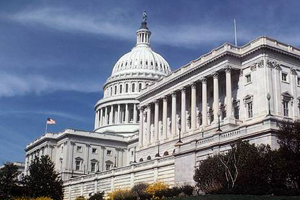NCC’s Roenigk testifies on state of US poultry industry

National Chicken Council (NCC) senior vice president and economist Bill Roenigk has testified before the House Agriculture Subcommittee on Livestock, Rural Development and Credit about the current state of the chicken industry.
Roenigk’s testimony focuses on a number of vital issues and difficult challenges currently confronting US chicken producers.
Roenigk notes in his remarks that the state of the chicken industry, at least for those surviving firms, is good in terms of net margins but the industry continues to be frustrated by the results of an inflexible renewable fuels policy and program. He explains that chicken producers have been unable to step up production this year to long term annual averages because of lasting and rippling effects of a failed federal ethanol policy that has been with us since 2006.
“The often-dismissed fact, especially today as grain prices moderate, is that the Renewable Fuels Standard (RFS) has inflicted deep and sustained damage to chicken production,” says Roenigk in his opening remarks. “In the end, consumers are once again paying the price for a biofuels policy and program that are broken beyond repair.”
Roenigk says that since the RFS was enacted, chicken companies have incurred over $44 billion in higher actual feed costs due to the RFS.
“EPA’s proposal for the 2014 RFS reflects again clear evidence that our nation’s biofuels policy is broken, and broken well beyond repair,” he adds. “The issues of the blend wall, food versus fuel, mandates for non-existing cellulosic ethanol and other issues will not go away until Congress deals with the reality of the unworkable, unsustainable, imbalanced and misnomered RFS.”
Roenigk also called the Trans-Atlantic Trade and Investment Partnership and the Trans-Pacific Partnership significant “job creators,” and said their implementation would increase poultry exports, resulting in more jobs and more family farmers growing poultry.
In addition, Roenigk called on Congress to promptly pass Trade Promotion Authority legislation so that the position of the US international trade negotiators is strengthened as they continue to move forward to successfully conclude these two critically important agreements.
Source: NCC













